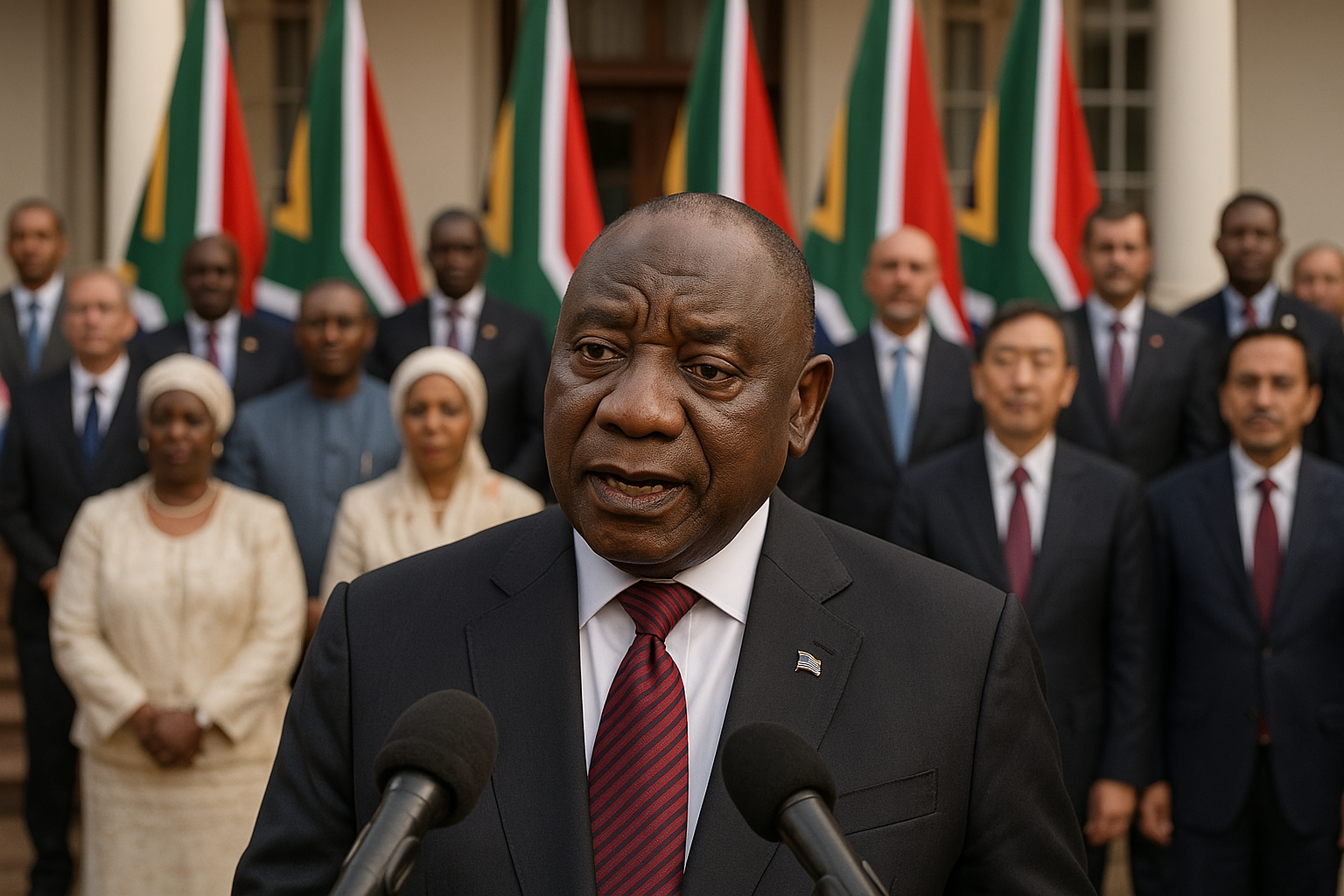Ramaphosa Defends Dismissal of Whitfield Over Unauthorized US Trip
“The President shall not yield to threats and ultimatums, especially coming from members of the Executive that he has the prerogative to appoint,” Ramaphosa concluded.

- Country:
- South Africa
President Cyril Ramaphosa has broken with tradition to publicly explain the dismissal of Deputy Minister of Trade, Industry and Competition, Andrew Whitfield, citing a breach of protocol involving unauthorized international travel. The announcement, made under Section 93(1) of the Constitution, has triggered a national debate, prompting the President to issue a detailed statement on Friday defending the decision and reinforcing the standards expected of Members of the Executive.
Breach of Protocol: The Catalyst for Removal
According to President Ramaphosa, Whitfield’s dismissal stemmed from his unauthorized travel to the United States, which was undertaken without the express permission of the President, as required by long-standing government protocol. “This requirement is known to all Ministers and Deputy Ministers,” Ramaphosa said. “It was communicated clearly during the induction sessions at the start of the 7th administration and reiterated again in Cabinet as recently as March 2025.”
The President highlighted that all members of the Executive are bound by strict rules regarding international travel. “These rules are not merely guidelines—they are a matter of Executive discipline, and they are rigorously observed by all members,” Ramaphosa emphasized.
A Rare Presidential Explanation
Ramaphosa noted that it is not standard practice for the President to explain Executive reshuffles or dismissals. However, “several unfortunate statements and outright distortions by a number of people” had made it necessary in this instance.
The President also revealed that Whitfield expected to be dismissed, as acknowledged in conversations between Ramaphosa and Democratic Alliance (DA) leader John Steenhuisen, a fellow leader in the Government of National Unity (GNU). Whitfield even submitted a “perfunctory” letter of apology, which the President deemed inadequate given the gravity of the transgression.
Precedents and Presidential Prerogative
In response to DA concerns and ultimatums, President Ramaphosa cited historical precedents, including:
-
1995: President Nelson Mandela dismissed then-Deputy Minister Winnie Madikizela-Mandela.
-
2007: President Thabo Mbeki dismissed Deputy Minister Nosizwe Madlala-Routledge for similar unauthorized travel.
“I informed Mr Steenhuisen of these precedents,” Ramaphosa said, countering suggestions that the action against Whitfield was politically motivated or without historical context.
Response to DA’s Objections
Ramaphosa expressed surprise at the “intemperate reaction” of DA leader Steenhuisen, who reportedly objected strongly to the dismissal and requested time to brief the party’s Federal Executive before the official letter of removal was sent.
“This would have had no bearing on my decision,” the President stated firmly. “The appointment and removal of Ministers and Deputy Ministers is the sole prerogative of the President, as provided by the Constitution.”
The President dismissed claims that the removal was linked to other political dynamics within the GNU, asserting unequivocally: “There is no basis to suggest that Mr Whitfield’s removal is related to anything other than his failure to adhere to the established rules governing international travel.”
Expectations Moving Forward
President Ramaphosa confirmed that he has asked Mr. Steenhuisen to submit a replacement candidate for Whitfield’s position, as the DA retains its entitlement to a Deputy Minister under GNU agreements.
This episode marks a critical moment in the early life of the Government of National Unity, raising questions about how discipline, coordination, and shared governance will function among coalition partners. By reinforcing the President’s constitutional authority, Ramaphosa has drawn a clear line between political consensus and executive discipline.
“The President shall not yield to threats and ultimatums, especially coming from members of the Executive that he has the prerogative to appoint,” Ramaphosa concluded.
Constitutional Clarity in a New Political Era
This development underscores the President’s insistence on upholding institutional integrity and executive accountability, even as South Africa navigates a complex and evolving political landscape shaped by the GNU. Ramaphosa’s decision to articulate his rationale publicly marks a significant moment in South Africa’s democratic tradition, potentially setting a new standard for transparency in executive decision-making—while reinforcing that constitutional prerogatives remain non-negotiable.










